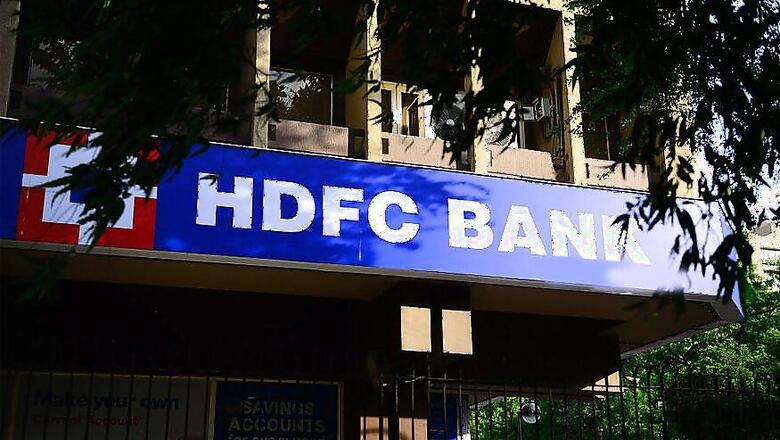
views
New Delhi: Financial services conglomerate HDFC Chairman Deepak Parekh has said succession planning at the housing finance firm and its group companies is a "key agenda" before their boards and they need to evaluate options of both external and internal candidates.
Parekh, however, made it clear that at HDFC Ltd, the board and its present Vice Chairman and CEO Keki Mistry have agreed that he will continue in this role for a period of three years, subject to shareholders' approval.
In his annual letter to investors, Parekh said it is important to reiterate to all the shareholders that succession planning both, within HDFC and its group companies is a key agenda on each of the respective boards.
"As passionate and energetic as some of our leaders within the HDFC group are about their jobs, the reality is that individuals do get on in age.
"Personally, the task of ensuring frictionless transitions is and will be on the top of my mind. That said, it is not as if there will be any announcements right away. All the boards of the HDFC group of companies believe that succession planning needs a time frame of 18 to 24 months to ensure a smooth transition," he said.
Parekh said he is confident of the strong pipeline of talent for various functions across all companies within the HDFC group.
"Yet, positions at the helm require the respective boards and nomination and remuneration committees to evaluate options of both, internal and external candidates," he wrote.
Parekh said he could not be more grateful to all the leaders across the HDFC group for the extraordinary work that they do each day.
"Yet, each one of these outstanding leaders stand tall because of their strong and cohesive teams that back them. As for me, I won't lose sight of the fact that it is the continued support of our shareholders that gives me the privilege to serve as non-executive chairman," he said.
Besides HDFC Ltd, the major group firms include HDFC Bank, currently headed by Aditya Puri, as well as its mutual fund and insurance ventures.
The bank has also decided to look for the successor for its managing director Aditya Puri. The successor is likely to be announced by October 2019, a year prior to Puri stepping down from the charge in October 2020.
Parekh said HDFC has delivered amongst the best-in-class shareholder value - an estimated 360 times increase in market capitalisation over a 25-year period between 1993 and 2018.
There are now four listed entities within the HDFC group and one more is on the anvil.
"We hope to have the initial public offering of HDFC Asset Management Company Limited launched shortly," Parekh said.
He said HDFC concluded the last financial year with an equity share capital raise of Rs 13,000 crore and a large part of the capital raised will be utilised to maintain its shareholding in HDFC Bank.
"Our investment in the bank has been amongst our best value drivers for several years," he said.
Parekh said HDFC continues to maintain a fortified balance sheet and the time is right to lay the foundation for the next phase of long-term growth and sustainability.
"Some of our plans for the future are still at the drawing board stage. Yet, we know the broad contours.
"We want to focus on strengthening our presence across the entire value chain of housing, seek opportunities in stressed real estate assets, mark a deeper footprint in the health insurance space and explore emerging organic and inorganic growth opportunities," he said.
Parekh said the group will also continue to support the growth of our subsidiary companies.
He said as a financial conglomerate, HDFC needs to keep building for the future.
"Our key long-term priorities are ethics, transparency, performance and customer-orientation. We will continue to pursue these priorities with vigour whilst focusing on the potential to create long-term value," Parekh wrote.
He said the group regularly engages in dialogue with our stakeholders on developments of the Corporation, but desists from the practice of quarterly or annual earnings guidance.
"Listed companies do feel the pressure - not of quarterly reporting per se, but meeting short-term expectations of the markets in an increasingly volatile environment.
"Globally, there is a discernible trend of companies curtailing capex, holding back on investing in new products or reducing budgets on human resources, research and development. These are often myopically construed as dispensable costs. Nothing can be more damaging to a company than putting off long-term investments to appease short-term stakeholders.




















Comments
0 comment